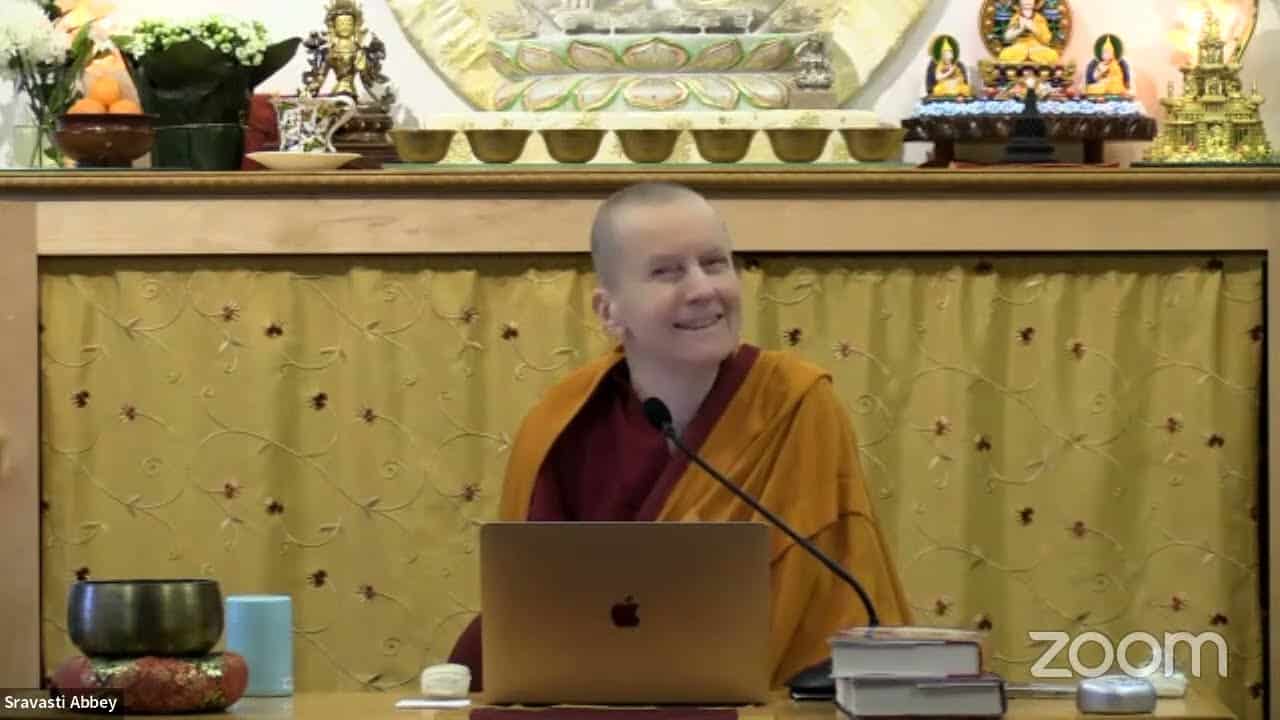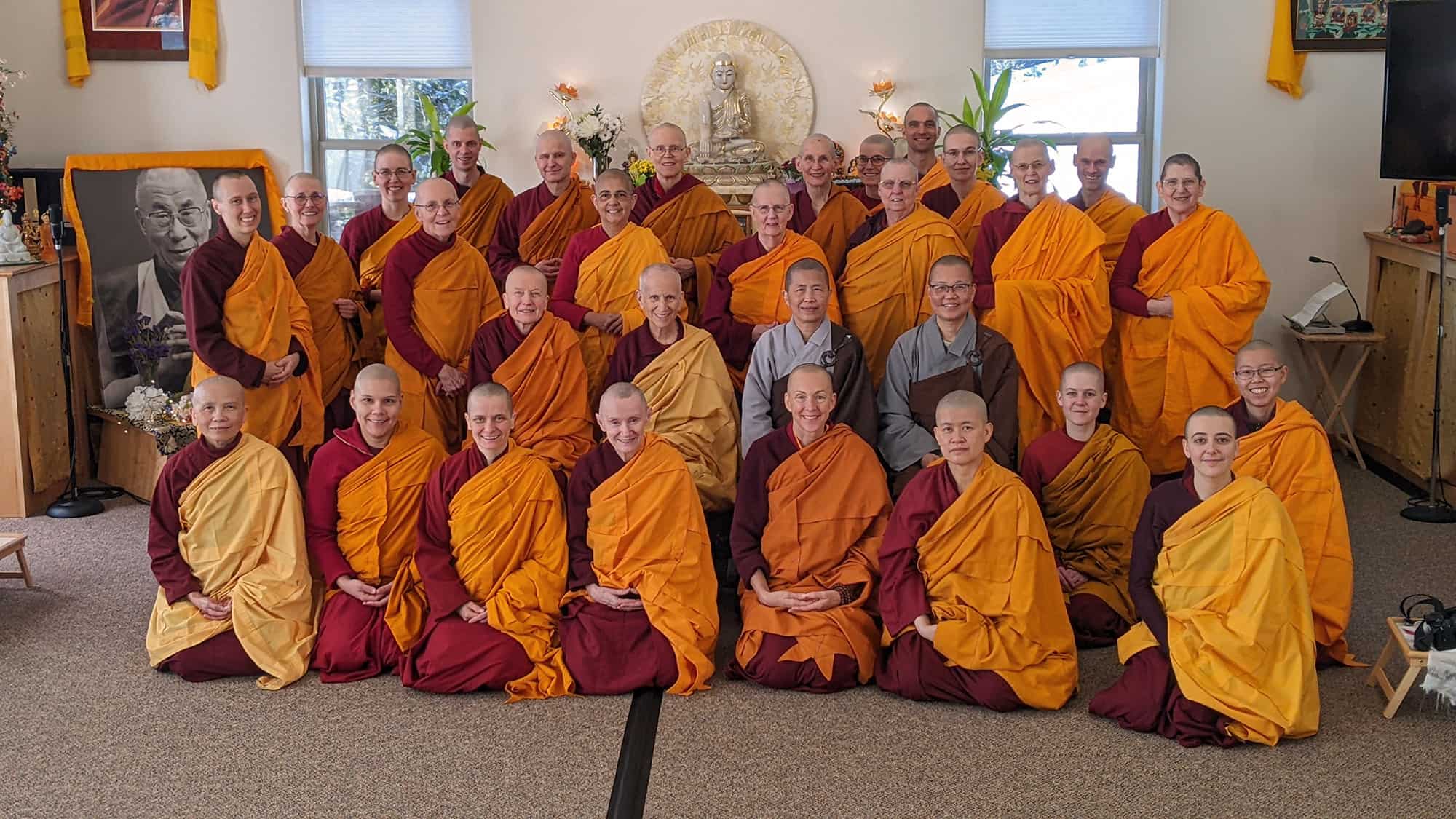Four puzzling points
125 Samsara, Nirvana, and Buddha Nature
Part of an ongoing series of teachings (retreat and Friday) based on the book Samsara, Nirvana, and Buddha Nature, the third volume in The Library of Wisdom and Compassion series by His Holiness the Dalai Lama and Venerable Thubten Chodron.
- Review of buddha nature
- How afflictions are adventitious
- Four puzzling points
- Buddha nature is pure, yet has afflictions
- Awakening is not afflictive, yet is purified
- Emptiness of buddhas’ minds and sentient beings’ minds are not different
- Awakening activity is spontaneous, yet it occurs without any thought
- How to overcome discouragement and work with the distorted conceptions
- Refuting the wrong view that buddha nature does not exist and awakening is not possible
Samsara, Nirvana, and Buddha Nature 125: Four Puzzling Points (download)
Contemplation points
- All beings have the buddha nature that is an inseparable part of our minds, however, how many of those beings are actually aware of this potential and make use of it? How did you relate to the world before you met the dharma? Consider the kind of karma we create without the awareness of our potential for awakening. Allow compassion for other sentient beings, who do not know there is an alternative to samsara, to arise in your mind.
- Why it is so important to have a correct understanding of Buddha nature? What are some examples of grasping at an inherent self that you notice in your mind when you think about yourself and Buddha nature?
- Explain in your own words why the mind being empty makes the afflictions adventitious? Why aren’t our virtuous qualities also adventitious?
- Contemplate the four puzzling points and reflect on the explanations that resolve them. Make your examination personal, using examples from your own life and the world around you.
- From beginningless time, buddha nature has been pure and free from defilements, yet it still has afflictions and defilements.
- The awakened mind is pure, yet it needs to be purified.
- The emptiness of buddhas’ minds and the emptiness of sentient beings’ minds are indistinguishable in that both are pure and empty of inherent existence, yet one belongs to buddhas and the other belongs to sentient beings.
- Buddhas’ awakening activity is spontaneous, yet it occurs without conscious motivation.
- Consider discouragement as it arises in your own mind and see it for what it is: just a mass of distorted conceptions that you believe to be true. Imagine letting these thoughts go in the moment. How might this change your experience?
- Feel your own yearning for spiritual awakening and your aspirations to free yourself from the obscurations that bind you. Realize that these indicate the existence of the buddha nature. Respect that aspect of yourself and determine to nourish it.
Venerable Thubten Chodron
Venerable Chodron emphasizes the practical application of Buddha’s teachings in our daily lives and is especially skilled at explaining them in ways easily understood and practiced by Westerners. She is well known for her warm, humorous, and lucid teachings. She was ordained as a Buddhist nun in 1977 by Kyabje Ling Rinpoche in Dharamsala, India, and in 1986 she received bhikshuni (full) ordination in Taiwan. Read her full bio.


